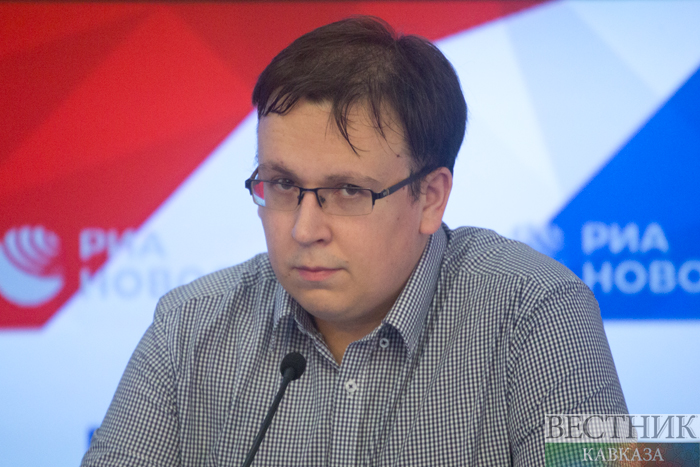Commenting on the results of Vladimir Putin’s visit to the Persian Gulf countries earlier this week, Russian experts focused on Moscow’s initiative to establish a regional security system.
The deputy director of the Institute of Forecasting and Political Settlement of Conflict Situations, Alexander Kuznetsov, noted that the relevance of establishing such a security system was once again demonstrated on September 14 after attacks on Saudi oil facilities. "In order to prevent such conflicts and a possible greater conflict in the region, it is important to create a regional security system proposed by Russian diplomacy, like an Organization for Security and Co-operation in Europe. That is, it will be a security organization for the Persian Gulf region."
At the same time, the expert noted that there are two main antagonists in the region - Saudi Arabia and Iran. "In recent years, they have reached an open confrontation. There are a very large number of mutual claims, often justified. Saudi Arabia believes that Iran is gradually squeezing it from its traditional spheres of influence, there's thesis about a hostile Iranian environment: Iranians in Iraq, Iranians in Syria, Iranians in Yemen.
At the same time, Iran believes that Saudi Arabia has long sponsored international terrorist organizations, in particular Al-Qaeda (banned in Russia). Saudi Arabia did a lot before the current leadership came to power to fuel the conflict in Syria, to help the armed opposition and radical terrorist groups. Now this position has changed, however, Iran didn't give up its claims. Iran believes that the Saudi elite pushes the U.S. leadership, the Trump administration to hostile actions against Iran, in particular, to crippling economic sanctions against Iran," Alexander Kuznetsov said.

Speaking about Moscow’s proposal, he noted: "Creating such a security system is of great importance so that irrational forces, the U.S., cannot use the conflict potential to achieve their goals. Of course, it cannot be solved in two months, since a huge potential for confliction has accumulated in relations between these countries. But this problem should be solved, and Russia could play a big role here."
Senior Lecturer of the Department of Political Science at the Higher School of Economics of the National Research University, expert of the Russian International Affairs Council Grigory Lukyanov, said that in the face of the collapse of the security architecture that was built in the region after 2003-2004, after the U.S. invasion of Iraq, Iraq ceased to be a regional power and turned into a zone of ongoing armed conflict and source of security risks. "It has been generally accepted for a long time that the Gulf Cooperation Council is the only functional and promising regional organization uniting the Arab states. But the Qatari crisis blocked it, and against the backdrop of the numerous provocations against Iranian tankers, against tankers of other countries that took place this year in the Strait of Hormuz, in the Gulf, we see that the mechanisms developed in the framework of the Cooperation Council, to find the basics of cooperation between the Arabian Peninsula countries to promote security, prevent real challenges and threats, do not work," Grigory Lukyanov noted.

"The concept of regional security suggested by Russia is not a panacea, but it proceeds from the need to start an important constructive conversation between the regional countries on developing some kind of institutional framework that would allow constructive restructuring of interaction between states. The recent security system was based on the indispensable permanent military political presence of extra-regional forces such as the United States and Great Britain. The reaction of the United Kingdom and the United States to the latest provocations in the Gulf showed that they can not offer any constructive participation in preventing the recurrence of such events. The attempt to shift the responsibility to Iran exclusively did not give any real result, with the exception of the deteriorating situation in U.S.-Iranian relations and the around the Iranian nuclear deal," the expert said.
"We observed an extremely humorous situation with the complete military dysfunction of Great Britain, which could not send anything but one warship to the region, and limited itself to words of support for the countries of the region. The U.S. military power, which was the cornerstone of this Gulf security system, crowned by aircraft carriers was also unable to somehow influence the situation. Moreover, the Americans even managed to lose their drone in the immediate vicinity of Iran. Thus, a model relied on the "big brother" of the United States, the military gendarme of the region, is not fully functional. Russia neither can nor want to fulfill the role of the United States in the region. It offers other principles that have already been manifested in the OPEC+ deal. This agreement was built on the absolute equality of the parties that signed it. Saudi Arabia and Russia acted on equal terms as the main forces that are interested in a pragmatic overall result: a regulated, controlled, predictable oil price in the foreseeable future," Lukyanov asserted.






